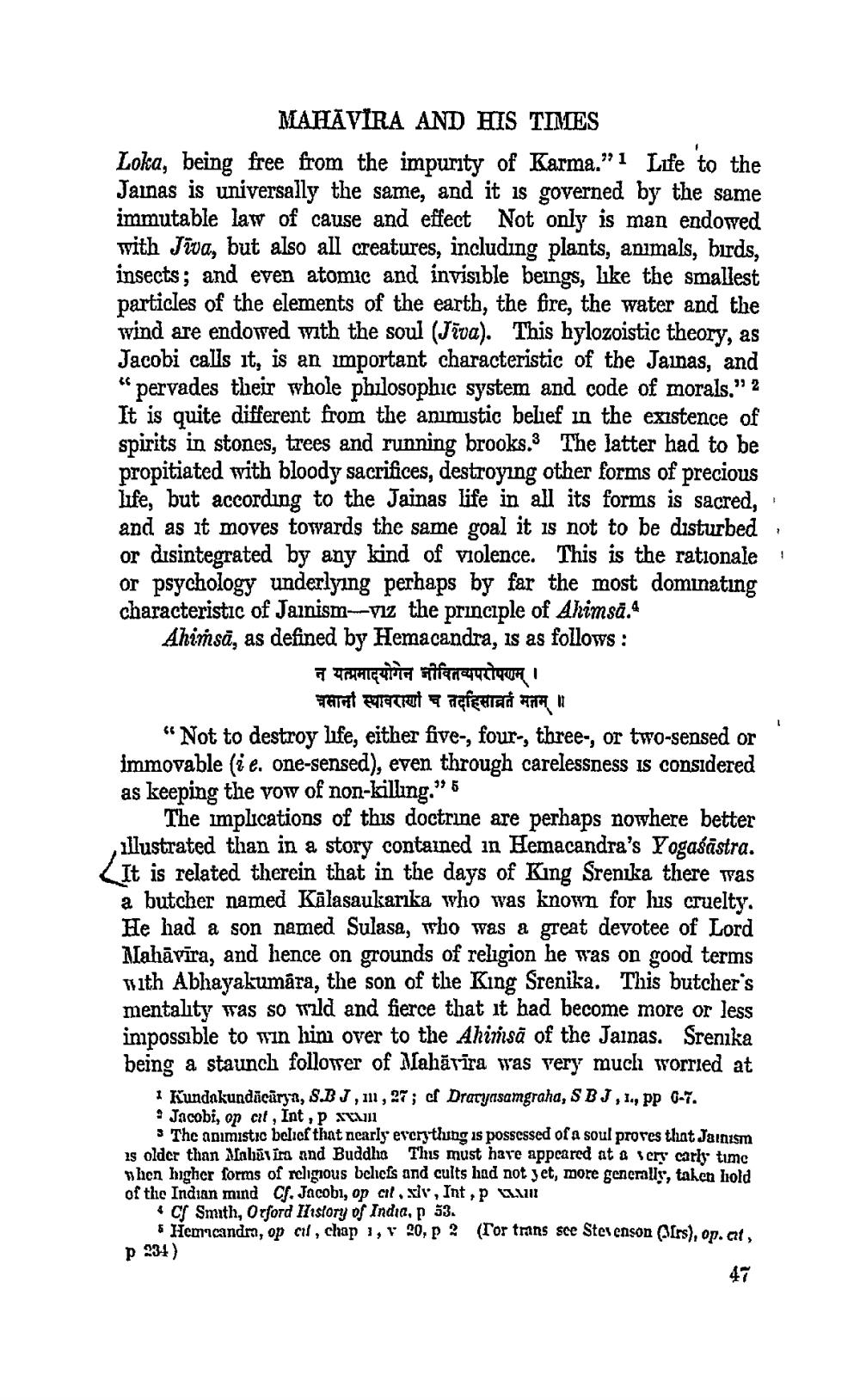________________ rticles of the elematomic and invisiblaing plants, ani MAHAVIRA AND HIS TIMES Loka, being free from the impurity of Karma."1 Life to the Jainas is universally the same, and it is governed by the same immutable law of cause and effect Not only is man endowed with Jiva, but also all creatures, including plants, animals, birds, insects; and even atomic and invisible beings, like the smallest particles of the elements of the earth, the fire, the water and the wind are endowed with the soul (Jiva). This bylozoistic theory, as Jacobi calls it, is an important characteristic of the Jainas, and "pervades their whole philosophic system and code of morals." 2 It is quite different from the animistic belief in the existence of spirits in stoncs, trees and running brooks. The latter had to be propitiated with bloody sacrifices, destroying other forms of precious life, but according to the Jainas life in all its forms is sacred, and as it moves towards the same goal it is not to be disturbed or disintegrated by any kind of violence. This is the rationale ! or psychology underlying perhaps by far the most dominating characteristic of Jainism-viz the principle of Ahimsa. Ahimsa, as defined by Hemacandra, is as follows: न यत्प्रमादयोगेन जीवितव्यपरोपणम् / असाना स्थावराणों च तदहिसाबत मतम् // "Not to destroy life, either five, four-, three-, or two-sensed or immovable (i e. one-sensed), even through carelessness is considered as keeping the vow of non-killing." The implications of this doctrine are perhaps nowhere better illustrated than in a story contained in Hemacandra's Yogasastra. It is related therein that in the days of King Srenika there was a butcher named Kalasaukarika who was known for his cruelty. He had a son named Sulasa, who was a great devotee of Lord Mahavira, and hence on grounds of religion he was on good terms with Abhayakumara, the son of the King Srenika. This butcher's mentality was so wild and fierce that it had become more or less impossible to win hini over to the Ahinsa of the Jainas. Srenika being a staunch follower of Mahavira was very much worried at * Kundnkundacarya, S.BJ,11,27; d Draryasamgraha, SBI, 1., pp 6-7. * Jacobi, op cit, Int , m l * The animistic belief that ncarly everything is possessed of a soul proves that Jainism is older than Mahilvira and Buddha This must have appeared at a cry carly time when higher forms of religious bchefs and cults had not yet, more generally, taken hold of tlic Indian mind Cf. Jacobi, op cil, lv, Int, un * Cf Smith, Orford Trstory of India, p 53. * Herriandra, op el, chap 1, v 20, ? (ror trans see Stevenson Qirs), op.a. p 231)




